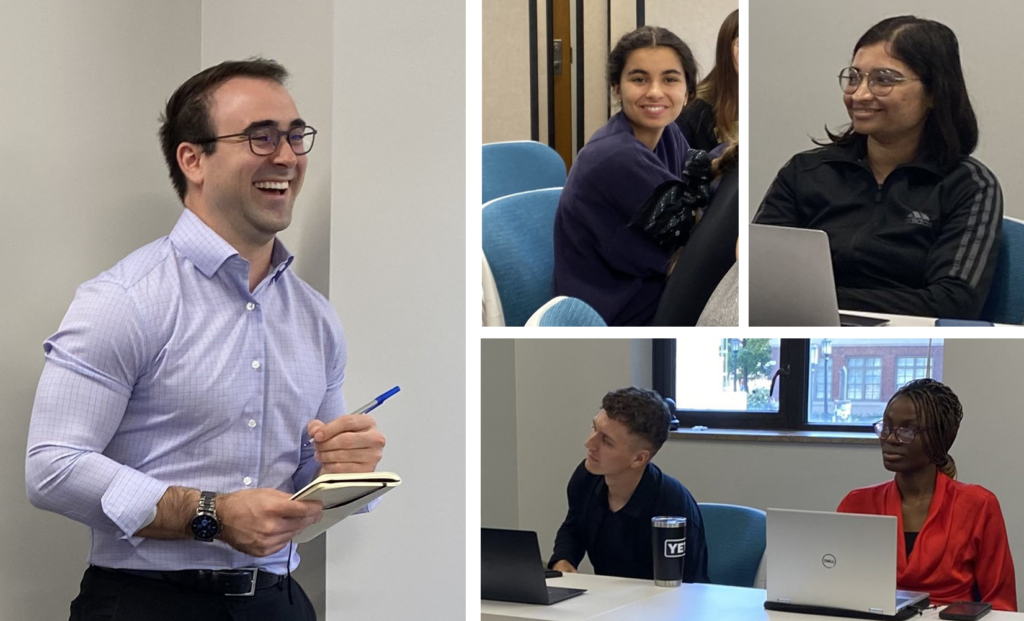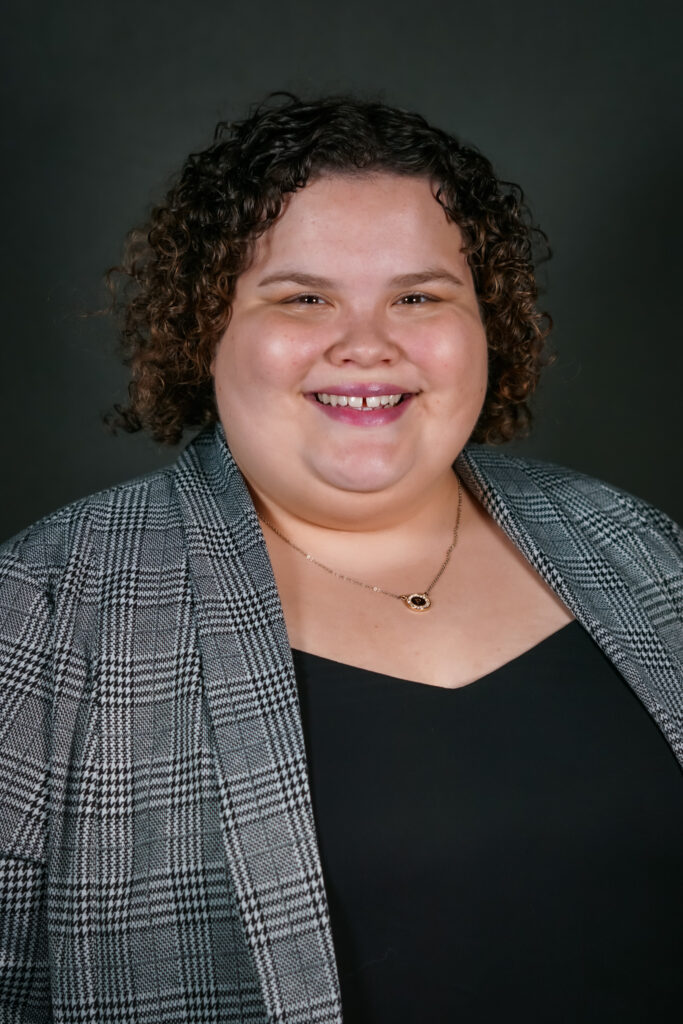GRAIL researchers explore social, political implications of AI as legislation expands
On the agenda for this 60-minute meeting inside Beering Hall is President Joe Biden’s 100-page executive order issued last October about the use of artificial intelligence (AI).
“This order has implications beyond Silicon Valley. Any policy about AI impacts finance, medicine, education, manufacturing…” Kaylyn Schiff — assistant professor in Purdue’s Department of Political Science — trails off, implying the endless industries being turned upside down by the recent boom in AI.
“Our decisions about AI today will shape society tomorrow.”

So, how are Purdue researchers — some gathered around a conference table in Beering Hall poring over Biden’s executive order — helping to build a safe gateway to the future?
The Governance and Responsible Artificial Intelligence Lab, known more commonly by its acronym “GRAIL,” focuses on collaborative and interdisciplinary research on AI policy, ethics and governance. Started in 2022 within the College of Liberal Arts, GRAIL is filling a gap in academic research that persists in this newest technological landscape.

“Most academic think tanks focus on security, international relations or technical features of AI,” shares Daniel Schiff — assistant professor of political science — who began studying AI ethics and policy in the late 2000s. “We founded GRAIL to explore the social, ethical and political implications of AI more broadly.”
Since its founding, GRAIL has seen a growing demand for its research and insights on and off campus as society grapples with how generative AI is changing the way people work, learn and navigate society. The lab currently brings together over 40 faculty, students and affiliates from six universities who share knowledge in a variety of fields like political science, philosophy, criminology, linguistics, sociology, computer science and engineering.
“We are here to gather information about AI and the policies governing it, create an archive of these decisions and see what consequences come from them,” shares Kaylyn Schiff.
Part of this research is the database AGORA — the Artificial Intelligence Governance Regulatory Archive. Created in collaboration with Georgetown University’s Center for Security and Emerging Technology, this database aims to organize and analyze national, state and local legislation in the United States pertaining to AI.
“As AI legislation expands rapidly, AGORA will provide researchers with a comprehensive resource to compare policies and explore the technology’s impact on democracy,” shares Kaylyn Schiff.
In addition to AGORA, GRAIL has approximately 15 other projects underway, including research that examines the role of AI in education, criminal justice, human resources and manufacturing. They operate the Political Deepfakes Incidents Database and AI Attitudes Survey Hub. As an affiliate of Purdue’s new Institute of Physical AI, GRAIL was brought into the National Institute for Standards and Technology AI Safety Consortium. Members of the lab are also active within the Steering Committee of the Academic Alliance for AI Policy (AAAIP), and co-director Daniel Schiff recently served as the founding Responsible AI Lead at JP Morgan Chase.

As artificial intelligence continues to mold the future, GRAIL will continue to study the policies that shape our use of AI. With the goal of developing more resources like AGORA, publishing more academic research and continuing to share insights with the public at large, it’s clear that GRAIL is positioning Purdue to be a leader in tech policy and governance.
To learn more about GRAIL and to see their recent publications, please visit www.cla.purdue.edu/academic/polsci/research/labs/grail.
Last updated: Feb. 6, 2023

Author: Emily Jones, Communication Manager for Student Success Programs, jone1594@purdue.edu